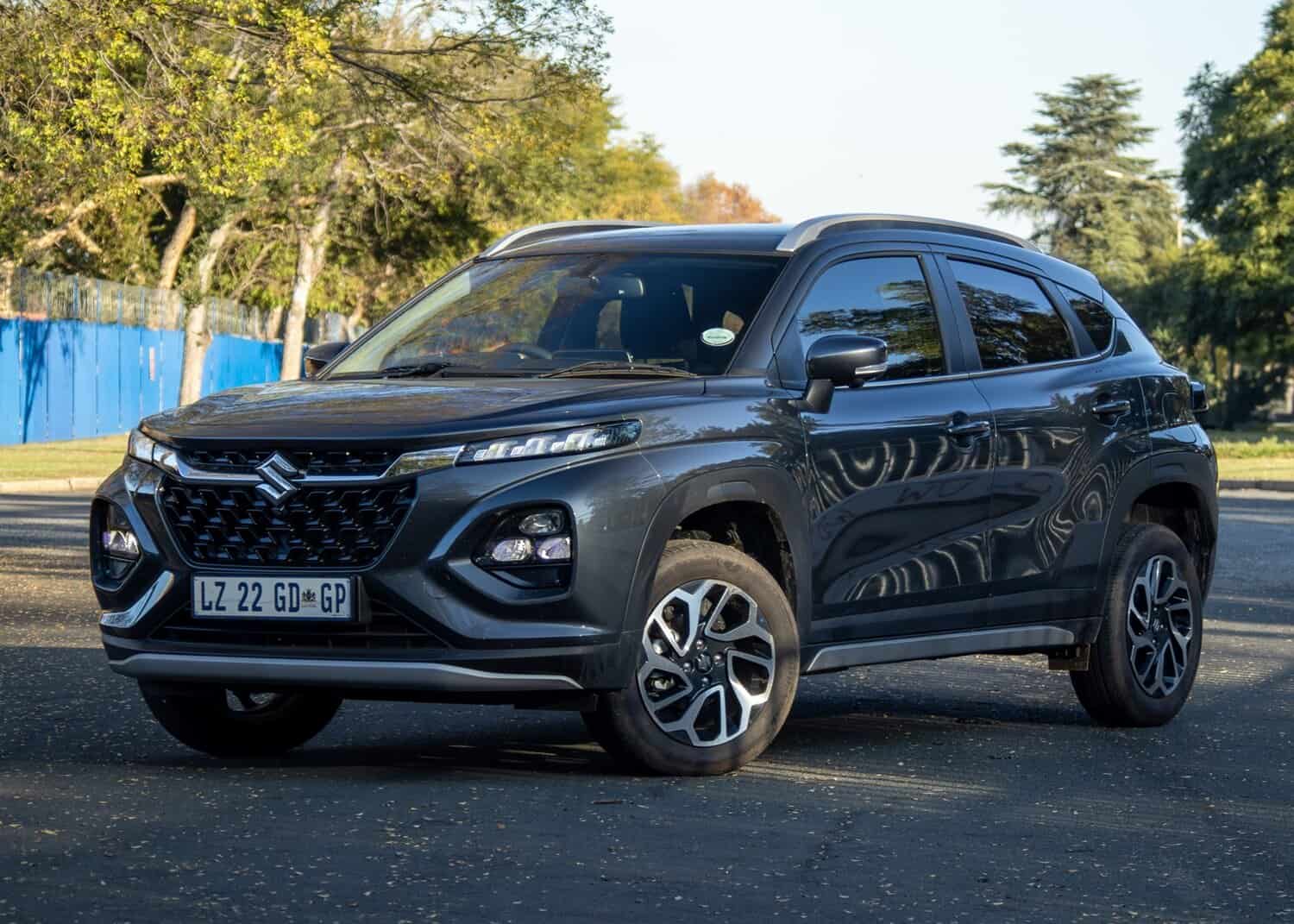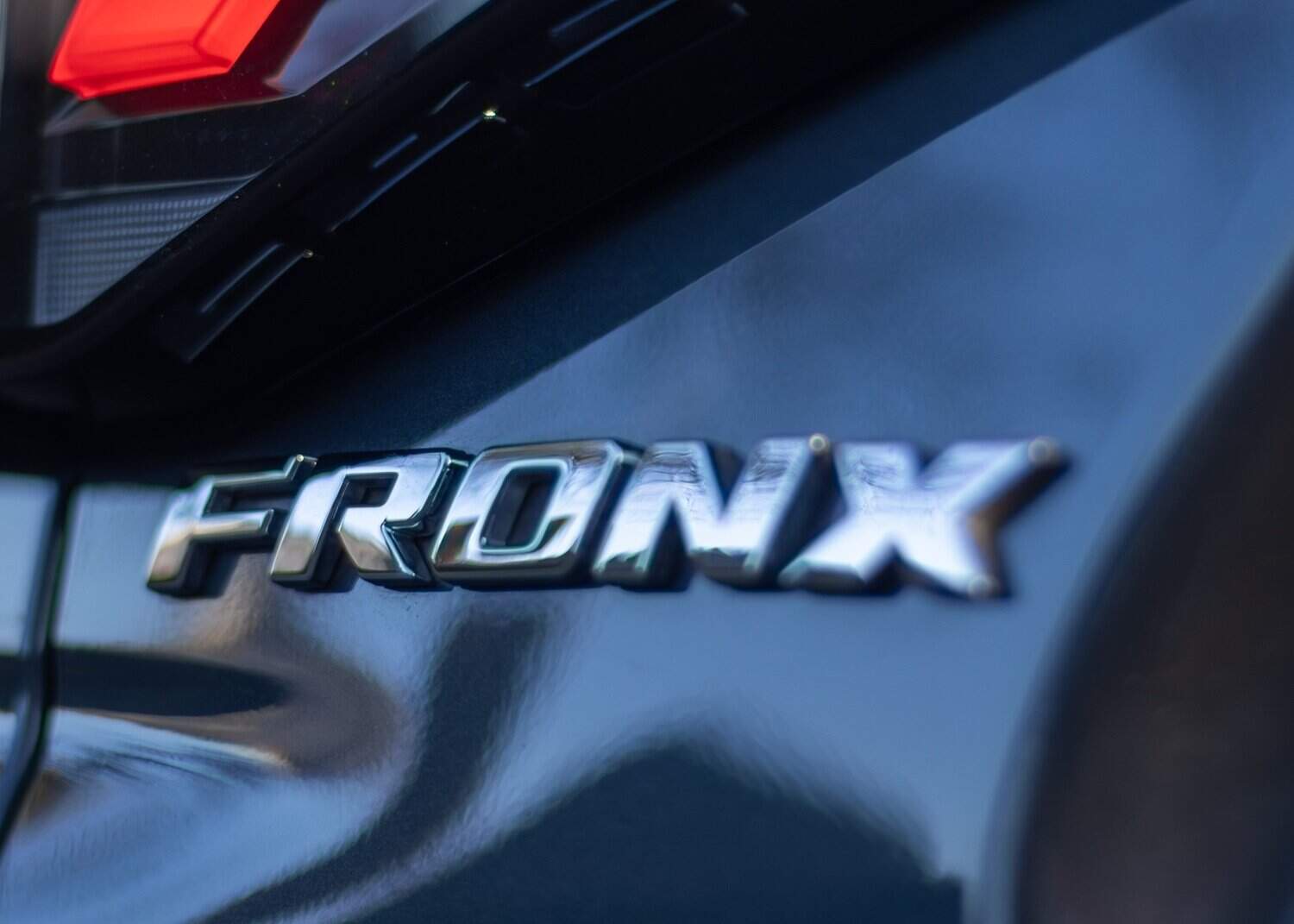After six months and more than 5 000 km, the time has come to bid farewell to our fuss-free long-term flagship Fronx GLX.

The Suzuki Fronx has been nothing short of a runaway success since its South African market arrival in the latter stages of 2023.
Success after success
In its first full year of sales last year, a total of 7 355 units departed dealership floors, with offsets this year so far amounting to 5 351 units – January being the only month where sales failed to breach the 1 000 mark.
ALSO READ: Row-it-yourself Suzuki Fronx is great fun when you are in a hurry
Although signalled out for its name, a combination of “frontier next”, the crossover stablemate of the Baleno has also outshone its rebadged Toyota sibling, the Starlet Cross, whose total sales for 2025 so far stand at 4 538 units.
Initial worries…
Hamstrung by demand outstripping supply in the early half of last year, the Fronx, made by Suzuki’s Maruti division at its Ahmedabad plant, has maintained its popularity in spite of added criticism brought on by the lack of the turbocharged Boosterjet offered at home.
A move that would most likely have driven pricing up significantly, the selection of the tried-and-tested normally aspirated 1.5 K15B petrol engine has been anything but a disaster, not only in power and torque delivery but also in fuel consumption.
..but a stellar companion
Arriving towards the end of last year, The Citizen’s long-term Fronx 1.5 GLX returned home last month after a prolonged six-month stay, during which a total of 5 724 km was added to the odometer.
Often called on by other members of the editorial team for work commitments or out-of-province breaks away from the office, it garnered significant praise not only from a frugality standpoint, but also for its standard equipment that comes with its R342 900 price tag.

Its sticker having increased by R7 000 since its arrival, the Fronx’s recent and most unusual task involved a trip to Gerotek where Road Test Editor Mark Jones put it against the clock.
While initially a light-hearted evaluation considering the serious metal present on the day, the Fronx only got faster with each run as its engine, nicknamed by a fellow colleague as the “mighty K15B”, warmed up.

Despite the power sapping altitude of the Reef, the Fronx’s counter, its kerb mass of 1 010 kg and slick five-speed manual, saw it dispatch the 0-100 km/h sprint in 12.2 seconds.
Although highly unlikely to be subjected to a full-bore standing start by any buyer away from Gerotek, the Fronx’s tenure went unblemished, though a few niggles prevailed.
Yes and no
Standard on the GLX, the fetching two-tone black-and-burgundy leather interior won’t be to everyone’s tastes, and while its minder appreciated the inherent sporty look, a traditional single black option will probably resonate better with the greater majority of buyers.
Adhering to India’s sub-four-metre regulations, the Fronx measures 3 995 mm long, 1 765 mm wide and 1 550 mm tall, with its wheelbase stretching 2 520 mm.
While undramatically-sounding on paper, the coupe-esque sloping roof design robs rear passenger headroom to the point where taller folk will find a long journey uncomfortable despite legroom being more than sufficient.

While the Grandeur Grey Pearl Metallic paint option didn’t resonate much with yours truly on a personal level, the overall design wasn’t hampered as much given how a colour can often make or break a vehicle’s lasting appearance.
Instead, it, arguably, stands out within Suzuki’s product portfolio as the most striking and best looking product available.
Mounted on 16-inch alloy wheels, the Fronx also has a rugged look thanks to its wheel arch cladding, silver door sills and imitation satin silver skidplates underneath the front and rear bumpers.

Often overlooked, the rear facia design is neatly executed with a rounded appearance and a slim light cluster connected by a full-width LED light bar.
Opening the door, and bar the divisive the colour, the Fronx’s Baleno roots results in an interior that is logically devised and well put together.
While material quality, unsurprisingly, varies from soft-touch to hard-feeling plastics from surface to surface, everything else feels well screwed together as no rattles or squeaks developed throughout the six months.

As has been the payoff line of many Suzuki models, the GLX’s level of equipment left little to be desired, especially considering its price.
Besides automatic climate control with rear vents, a multi-function steering wheel and push-button start, the range-topping Fronx boasts a Head-Up Display and a 360-degree surround-view camera system as its specification headlights.
Whereas the lower-rung GL makes do with a seven-inch infotainment system, the GLX nets the bigger nine-inch – also with Apple CarPlay and Android Auto – which proved easy to scroll through in complete contrast to the overcomplicated setups of similarly priced Chinese products.

Although an ergonomic success, an aspect of the interior that deteriorated over time was the front seats.
Firm and comfy upon arrival, the cushions softened over time to the point where the seats felt under-bolstered and in need of more padding.

On the practicality side, the space constraints faced by rear passengers haven’t made it to the Fronx’s boot.
As with the Baleno, the boot isn’t aligned with the loading lip, the result being a deep recess capable of accommodating 304-litres.
While unable to fold completely flat, lowering the rear frees up an additional 301-litres for a total of 605-litres.
The ‘mighty K15B’
Behind the wheel, the Fronx feels engaging and, as Mark’s figure proved, spritely considering its 15% power reduction at altitude.
Again the result of its mass and light but direct manual gearbox, the K15B’s 77kW/138Nm sounds comparatively meagre on paper, yet from low down, the Fronx pulls well and starts to get into its element higher up the rev range.
Unsurprisingly buzzy at the national limit, given the number of ratios, the initial high-rev spike tapers off and, with a few hilly sections thrown in, will require dropping a few cogs to keep the engine on song.

Its ground clearance rivalling some SUVs at 170 mm, the Fronx doesn’t feel top heavy and as such, comes with predictable handling, a soft ride that only becomes bouncy on coarse and badly maintained roads, and a light steering feel.
The biggest highlight throughout the six months was, of course, fuel consumption. Fitted with a 35-litre tank, distances close on 600 km were often covered at a rate well below six-litres per 100 km.
At its lowest, the trip computer often nudged five-litres per 100 km, yet was more inclined to hover around 5.4 or 5.5 L/100 km.
Conclusion
Straightforward simplicity without being spartan or dull has seemingly been the mantra of the Suzuki Fronx as it never put a foot wrong throughout it six month stay.

In fact, it often became a safe haven for being “normal” from the array of high performance or overly technologically advanced vehicles it had to share the limelight with.
A perfectly executed and superb value-for-money product, its goodbye has been a bitter one, but, unlike The Citizen, the latter won’t be applicable to buyers who sign on the dotted line.
NOW READ: Versatile Suzuki Fronx a willing runner that doesn’t run out of puff






